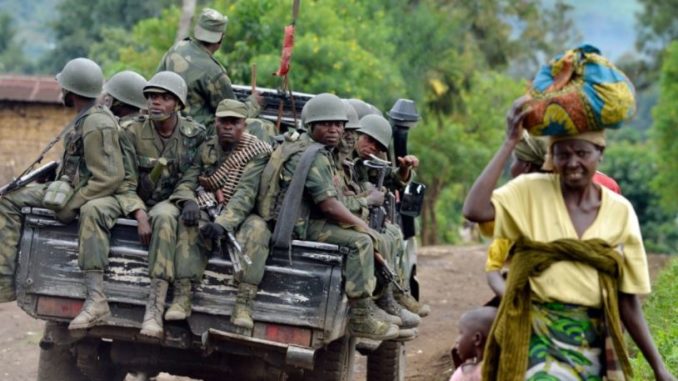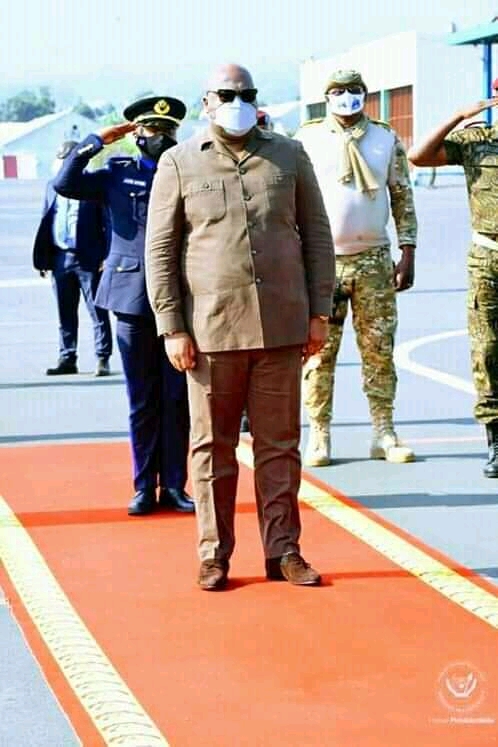
The security situation in the eastern part of the Democratic Republic of Congo remains worrying due to an upsurge in armed attacks. Indeed, activities of armed groups in the East of the country have further accentuated despite the implementation of the state of siege and ongoing army operations in the provinces of North Kivu and Ituri. Clashes between rival armed groups and attacks by militias against the population or against security forces are recurrent in this region of eastern DRC.
Indeed, at least 30 people were killed on September 4, 2021 in Ituri, in the hills of Tsani Tsani and Mapasana, Luna-Samboko, near the border with the neighboring province of North Kivu. Although this massacre of civilians in the eastern Democratic Republic of Congo was not claimed, authorities attribute it to the armed group Allied Democratic Forces (ADF). The attackers also looted civilian homes and stores before fleeing.
Prior to this attack, a series of deadly attacks had already targeted the eastern region of the Democratic Republic of Congo, including attacks on security forces. On September 1, 2021, at least four people were killed in an attack against a civilian convoy escorted by security forces along National Road 4 in Ofai, between Komanda and Luna in Ituri province. Over 80 people were also abducted by the attackers following the assault, which was once again attributed to militants affiliated with the Allied Democratic Forces (ADF). These attacks demonstrate the high level of risk in this region, where even security force convoys are often targeted. ADF militiamen frequently target security forces to supply themselves with weapons. They are very dangerous and have been sowing fear in this region since they began operating along the DRC border in the 1990s. The Allied Democratic Forces (ADF), is an armed group affiliated with the Islamic State (IS) that opposes the Ugandan government, but its militia members often conduct armed attacks in the Ugandan-DRC border areas. The ADF is considered the deadliest armed group in the DRC, with increased cross-border attacks between the DRC and Uganda. The Beni region and Ituri province, particularly villages such as Torgess, are the most vulnerable to attacks by ADF militiamen. They often loot the property of the inhabitants to resupply themselves. They are considered a terrorist group by the United States, Uganda and several other countries.
The eastern region of the DRC is also home to several other extremely violent armed groups, including CODECO (Cooperative for the Development of Congo). While the DRC security forces often conduct operations against ADF militiamen, they are also at war with other criminal groups, including CODECO. On September 6, 2021, at least 34 militiamen of the CODECO armed group, including the group’s chief of operations, were killed by the armed forces after intense fighting in Ituri. According to an army statement, the clashes took place in the locality of Kobu, located in Djugu territory. This area is considered the stronghold of the CODECO armed group, which also acts like the ADF group, attacking the population to rob them or the security forces.
The insecurity in eastern DRC is expected to persist despite the state of siege. President Félix Tshisekedi even decried the alarming situation during an official visit to the east of the country on June 12, 2021, when he travelled to Goma, Beni and Butembo in North Kivu to investigate the precarious security situation. This part of the eastern DRC, which is plagued by worrying insecurity, is becoming increasingly uncontrollable due to the activity of armed groups.

Tshisekedi in Goma
During his visit, President Tshisekedi stressed the importance of maintaining the state of siege in the region, and explained the delay in obtaining satisfactory results since its entry into force, pointing out ” the problem of organization of the defense forces and the police “. He also stressed the importance of “having a military officer at the head of the province to solve the security concerns. Indeed, since the implementation of the state of siege in this part of the country, civilian governors have been replaced by the military.
Mr. Tshisekedi also denounced the mafia-like gangrene within the armed forces and the country’s institutions, pointing out that there are “many schemes that undermine” the security forces. He also insisted on the need to “attack” this “mafia that is gangrenous in part of the army and public institutions” in order to restore security in this part of the eastern DRC. He appealed to young people involved in armed groups to lay down their arms and join the development of Ituri province, before reiterating his determination to definitively resolve the problem of insecurity in the east of the country before the end of his term.
Yet, despite the commitment of the authorities, resolving the insecurity situation in eastern DRC will not be an easy task. The government will need to root out corruption in the DRC army, better train security forces for action, mobilize sufficient resources to strengthen the army’s presence in the region, and cut off intelligence from armed groups. It should also identify all strongholds of active armed groups and conduct well-coordinated operations to weaken and eradicate them completely.

Leave a Reply